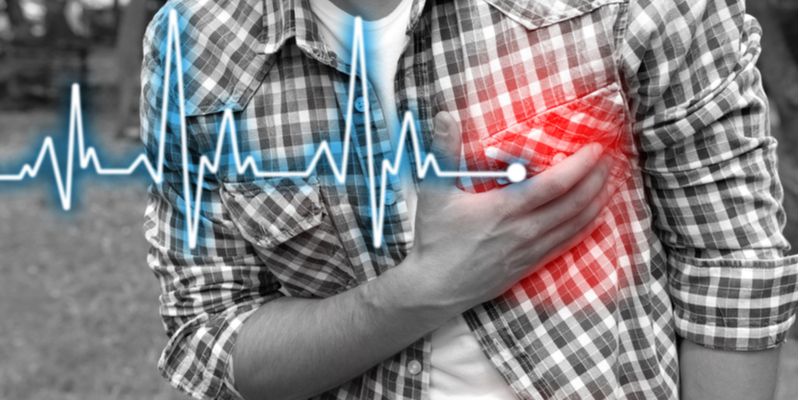IIT Hyderabad team develops biosensor for early detection of heart diseases
These devices are microfluid-based biosensors that can deal with small volumes of fluids in the range of a quadrillionth of a litre, which enables them to convert the biochemical reaction into an optical or electrical signal.
Healthcare in India has always remained a matter of concern. With an estimated population of over 1.3 billion people, providing basic healthcare can be quite a challenge.
Data suggests, heart attacks alone caused 2.1 million deaths in India in 2015. Within this, CVD or cardiovascular disease is one major public health issues, which can be cured if detected at an early stage.

Representational Image
To tackle the issue and address the early stages of CVD and other heart-related issues, IIT Hyderabad has developed a biosensor device to detect heart disease with high speed, sensitivity, and reliability.
The research was done in collaboration with various institutes across the world. Headed by Professor Renu John, Head, Department of Biomedical Engineering, IIT Hyderabad, the research can also be extended to the detection of other diseases.
This can be achieved by varying the type of biomarker/antibody, which is attached to nanospheres integrated in the biosensors.
Speaking on the research, Professor Renu said,
“Biomarkers are biological molecules that represent health and disease states. They are specific chemicals that are released in the body in response to certain physiological conditions. Cardiac troponins or cTns, for example, are biomarkers of heart diseases and are conventionally detected in the bloodstream using antibodies that bind specifically to them.”
She adds,
“Biosensors are devices that combine the sensing element (e.g. antibody) with a transducer that converts the interaction of antibody into an electrical or optical signal that can be measured. Conventional biosensing includes such techniques as ELISA, chemiluminescent immunoassay, and radioimmunoassay.”
To give an insight, these biosensors aren’t the conventional sensors integrated into our daily electronic devices. Instead, these are biosensors that can deal with small volumes of fluids in the range of quadrillionth of a litre.
These microfluid-based biosensors are integrated with nano materials that are hundred thousand times smaller than the thickness of the single human hair. These nano materials enable biosensors to convert the biochemical reaction into an optical or electrical signal, making it an effective tool for detection of cardiovascular diseases.
(Edited by Saheli Sen Gupta)
Do you have an interesting story to share? Please write to us at [email protected].To stay updated with more positive news, please connect with us on Facebook and Twitter.










![[Startup Bharat] Y Combinator-backed BeWell Digital is enabling the digital transformation of radiologists](https://images.yourstory.com/cs/2/40d66ae0f37111eb854989d40ab39087/ImagesFrames31-1648033042143.png)

